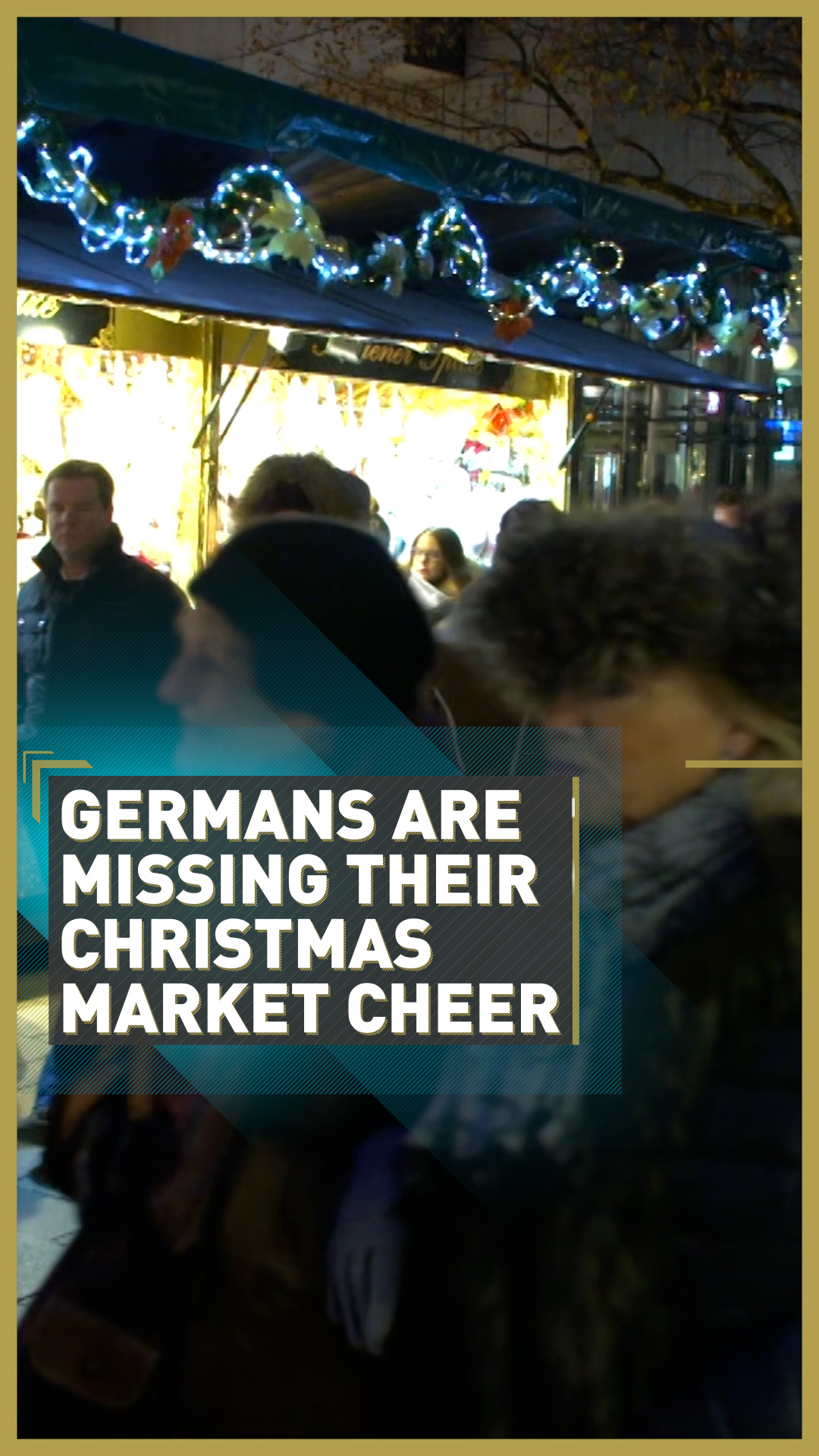03:30

A near-empty square with a lightly decorated tree is a far cry from the hustle and bustle of a traditional German Christmas market and there is sadness at the way the festivities have been halted.
There is a group of women in their 60s sat huddled together, each clinging onto a warm cup of traditional spiced mulled wine, known in Germany as Gluhwein.
They had come into the center of Munich, as they have done every year, to take in the sights, sounds and smells of one of the city's most popular Christmas markets.

"We're angry," said Wallie Honheim, 62, from Munich, "there's no Christmas market. We're used to coming into town for the Christmas markets and, of course, the Gluhwein."
Her friend Ada Fronberg agreed: "The Christmas markets are very much missing here because everything feels as if it's dead. It is not decorated at all, no lanterns, nothing. There doesn't need to be booths, but there could have been a little something more."
It's hard to imagine the yuletide season without Germany's festive Weihnachtsmarkt or Christmas markets, but the country's stubbornly high COVID-19 infection rates have led authorities to cancel them all.

Christmas markets have been closed this year in Germany due to the threat of spreading COVID-19. CGTN
Christmas markets have been closed this year in Germany due to the threat of spreading COVID-19. CGTN
"After much deliberation and in order to protect the population, we have come to the conclusion that the Christmas market will not take place this year," said Marcus König, mayor of Nuremberg, which hosts Germany's oldest and one of Europe's most popular markets.
It is feared that the tight, cozy alleyways filled with people removing their masks to eat and drink could pose a high risk for contamination.
Roughly 160 million people descend on Germany's 2,500 Christmas markets annually, meaning the economic impact of their closures this year will be felt far and wide, according to Munich's economic advisor Clemens Baumgärtner.
"If you only look at the Munich Christmas markets, all 30, then they are worth around 290 million euros," calculated Baumgärtner. "Without the Christmas markets, we will see a significant drop in visitors and, of course, less buying behavior in the other shops. All benefit from the additional purchasing power which is generated. We will certainly be talking about a loss in sales of over one billion euros which Munich has suffered due to this pandemic, due to the cancellation of the Christmas markets."

Many people are missing the Christmas spirit without the crowds at the markets. CGTN
Many people are missing the Christmas spirit without the crowds at the markets. CGTN
To reclaim some of these losses, Munich has offered stall owners the opportunity to market their products on the city web portal.
Without its renowned Christmas markets, unique, corona-compliant festivities are popping up across Germany. A drive through Christmas market has sprung up in the village of Unterbrunn, some 30 minutes west of Munich, to inspire that warm festive feeling.
"You drive in at the back there and get the menu from a little Santa," said Simon Wankerl, event organizer. "Then people have time to decide what they want before they get to the stalls. They pay at the till and then they can drive from stall to stall, staying in their cars in line with the coronavirus rules, and collect their treats."
Restrictions will be eased for the Christmas period, but discussions are being had on a national level to enact a second hard lockdown before the end of the year.

